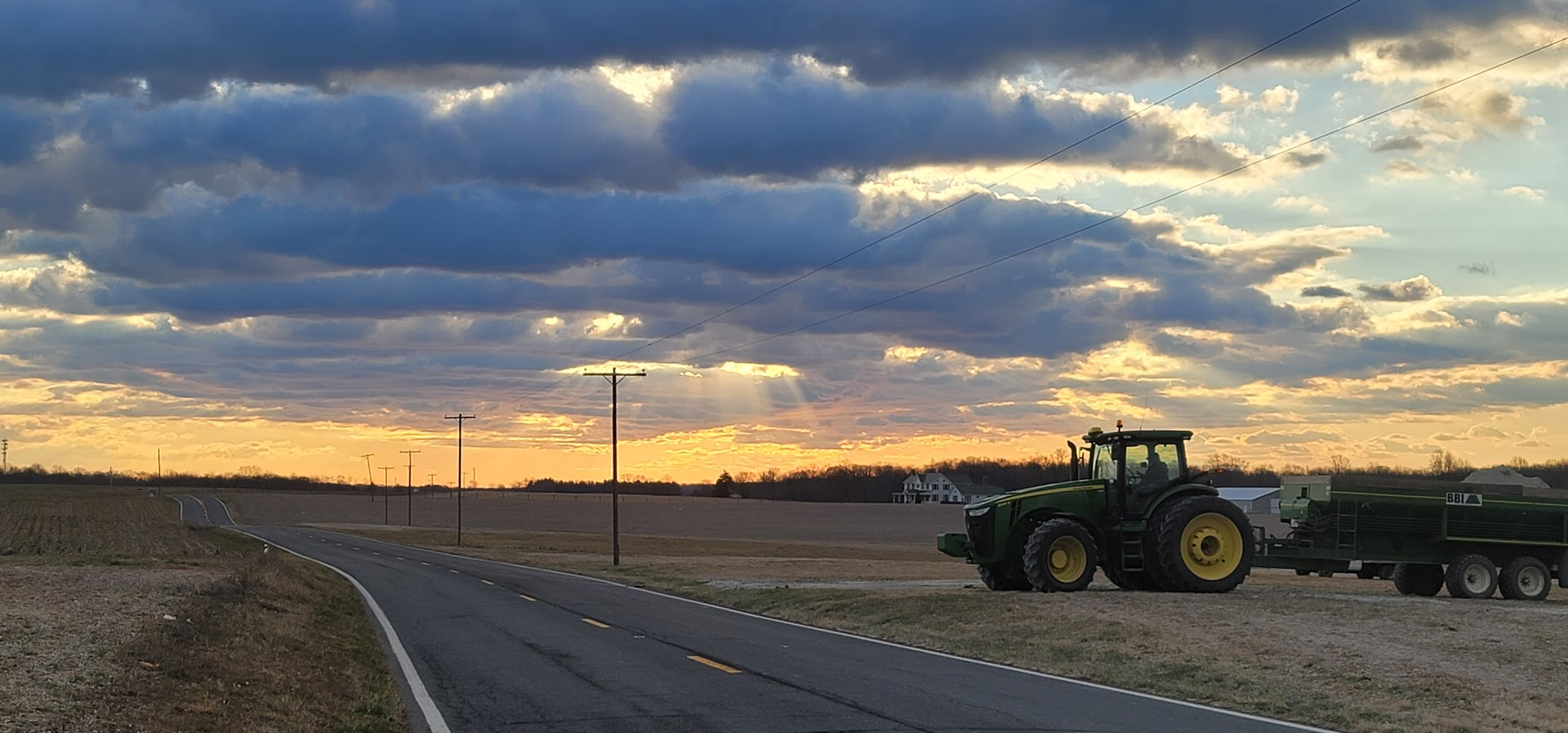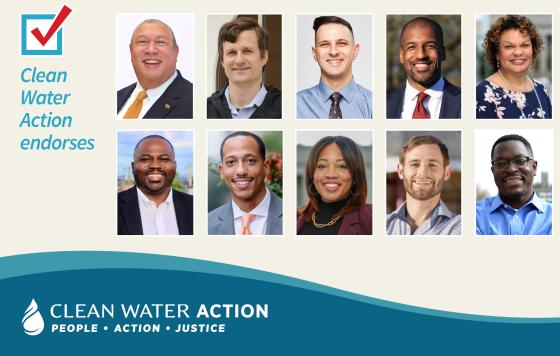
62 environmental, land preservation, food security, and agricultural groups - alongside 137 individuals - have signed on to this letter demanding that the Montgomery County Council amend ZTA 20-01 to make solar power a Conditional Use in the Agricultural Reserve. Here's why.
MAINTAIN AGRICULTURE AS THE PRIMARY USE OF LAND IN THE AGRICULTURAL RESERVE IN MONTGOMERY COUNTY, MARYLAND
SUPPORT THE CONDITIONAL USE PROPOSAL FROM AGRICULTURAL STAKEHOLDERS TO ALLOW SOLAR ON A CASE BY CASE BASIS
OUR CLIMATE DECISIONS CAN AND MUST REINFORCE – NOT DESTROY – OUR FOOD AND WATER SECURITY
Council President Tom Hucker
Montgomery County Council
100 Maryland Avenue
Rockville, Maryland 20850
January 2021
Dear Council President Hucker and Councilmembers,
Montgomery County is home to the nation’s most celebrated farmland. Our County’s Agricultural Reserve – a forty-year effort and model of farming on the edge of a metropolis – is 93,000 acres of land preserved for farming. Led by a coalition of farmers and advocates for local agriculture, food justice, climate justice, and clean water, the undersigned request your support to maintain agriculture as the sole primary land use in the Agricultural Reserve. This means rejecting ZTA 20-01 as written, and voting “Yes” on the Agricultural Stakeholders’ Conditional Use proposal for reviewing and permitting solar installations in the Agricultural Reserve.
A well-protected Agricultural Reserve is key to food security, human health, and environmental sustainability for all residents in Montgomery County and the Chesapeake region now and in the years to come. Its 562 farms supply food and fiber, along with clean drinking water and clean air, to the Greater Washington D.C. region. The ability to grow food locally has been critical during the pandemic, while 100,000 people in Montgomery County are food-insecure. The Farm to Food Bank Program is helping farmers ramp-up the supply of healthy table crops to families in need. And local food production will become even more critical as the climate crisis worsens. At present, 5% or less of the table crops eaten in our region are grown in our region; as fuel prices increase and food supplies are disrupted, Montgomery County’s need for the Ag Reserve, for the food security of its residents, will increase. All Montgomery County residents have been part of and paid for the Agricultural Reserve, and all Montgomery County residents benefit from preserving it for agriculture.
ZTA 20-01, if passed as written, will break the legal tools that have protected the Agricultural Reserve so far. The bill’s current language would allow a non-agricultural industry to be considered a “permitted use”, the same category as farming. This will destroy the legal protections that have allowed the County to preserve this land for agriculture. As the solar industry and its advocates have threatened, the Maryland Public Services Commission has the legal authority to site large-scale solar facilities of any size within the Ag Reserve. The fact that Montgomery County has maintained farming as the sole primary land use in the Ag Reserve for forty years supports the case for adhering to the Master Plan and maintaining this crucial land use commitment to agriculture. If Montgomery County now establishes large-scale solar as a co-equal permitted use for land in the Ag Reserve through this ZTA, its strongest argument against State siting of large industrial facilities will be lost, and the County will lose its control of land use in the Ag Reserve. Making solar power a conditional use instead, as proposed by the Stakeholders, will allow appropriate solar projects to move forward in the Ag Reserve while retaining the County’s local control over land use. This is the legal framework Howard County and Baltimore County have used, and Montgomery County must follow suit.
Smart solar siting does not require Montgomery County to rush to displace renting farmers. A sound climate response should not pit energy producers against farmers; we can choose to expand the solar industry in places where it won’t have such negative effects (including brownfields, parking lots, industrial roofs, and more) and there are many more effective methods we can use in the Agricultural Reserve that can assist the County in meeting their climate action goals - including using regenerative agriculture practices on our lands to pull carbon back into the soil. Neither Montgomery County nor the state of Maryland have completed a comprehensive study to determine where solar can and should be optimally placed; communities that have done so found more than enough appropriate sites to build solar without taking prime farmland.
If the Ag Reserve is opened to non-conditional solar development, this land use change will displace farmers from their land. Farmers rely on access to affordable land to rent: that’s why Montgomery County residents have invested for decades in easements, Transfers of Development Rights, and other tools to keep this valuable land affordable for farmers. But land rents being offered by the solar industry are more than 20 times higher than what many land-leasing farmers currently pay. Some of Montgomery’s tenant farmers are already losing their long-term leases, due to solar speculators’ offers to landowners. ZTA 20-01 would open 2% (1800 acres) of the land in the Ag Reserve to solar, but industry representatives have said this is only the beginning of the land they wish to access, with their aim being solar conversion of anywhere between 13,000 and 18,000 acres in the Ag Reserve. [Reimer, Hans. Statement during July 22, 2020 Joint Planning, Housing, & Economic Development and Transportation & Environmental Committees worksession, minutes 8 to 11.] Through the “Land Link” program of Montgomery Countryside Alliance, 40 new farmers - many of them immigrants, people of color, women, and veterans - are now seeking suitable land in the Ag Reserve, with 15 landowners offering farmland; the more landlords are able to raise rents and speculate on solar development, the fewer farmers will be able to afford and access land. Fifty-seven percent of land in the Ag Reserve is rented, not farmed by its owner – so renting farmers and new farmers searching for land to rent will lose out if forced to compete for land access with the deep-pocketed solar industry.
Montgomery County should not base its zoning decisions solely on private corporations’ profit and convenience. Solar industry speculators and owners are seeking to profit from converting “cheap farmland” to energy production, but that inexpensive farmland is not a happenstance - it is the result of the forty-year effort to create and protect the Ag Reserve to benefit farming, because producers need affordable, stable land access. By developing on this publicly-subsidized farmland instead of on available, more appropriate sites, the solar firms can increase their profits – but increasing corporate profits is not why Montgomery County has invested in preserving the Agricultural Reserve. The industry objects to the Conditional Use process because they claim it will take too much time – but that is the same process that other industrial uses that may be in the public interest, like cell phone towers or transmission lines, follow in order to use land in the Ag Reserve. Giving the solar industry a special dispensation that other industries do not have is not necessary to build solar power in Montgomery County.
We ask you to support the compromise Conditional Use amendment to the ZTA. The undersigned organizations and individuals ask you to work with the Stakeholder community to:
-
Reject ZTA 20-01 as written.
-
Support the compromise Conditional Use proposal instead
Montgomery County already has the second-most solar installations in the state; we don't need to destroy the Agricultural Reserve to create solar power. The County can keep fighting climate change and working for environmental justice by expanding the Farm to Food Bank program, instituting a regenerative agriculture pilot program in the Agricultural Reserve, conducting a solar siting study and Smart Solar location policy, and prioritizing solar development on degraded land, brownfield, built surfaces, and industrial zones (like the 500-acre former coal plant site in Dickerson). Let’s build a harmonious food and climate justice strategy that honors complementary roles for agriculture and appropriately-scaled and sited solar facilities.
For Food and Climate Justice,
Montgomery Countryside Alliance
Sugarloaf Citizens Association
Clean Water Action
Safe Skies Maryland
TALLE - Takoma Alliance for Local Living Economy
TAME Coalition (Transit Alternatives to MidCounty Highway Extended)
Divergence, LLC
Maryland Wildlife Rehabilitators Association
Preservation Maryland
Sugarland Ethnohistory Project
Landscape and Nature Discoveries
Biodiversity For A Livable Climate
Conservation Montgomery
Poolesville High School Chesapeake Bay Coalition
One Tree Club
Friends of Ten Mile Creek
Echotopia LLC
West Montgomery County Citizens Association
Environmental Justice Ministry-Cedar Lane Unitarian Universalist Church
Valley Mill Camp
Richard Montgomery High School Fishing Club
Voices MD
L & M Farm
Montgomery County Farm Bureau
Envision Frederick County
Town of Barnesville
League of Women Voters of Montgomery County
Kingsbury's Orchard
Cloverly Civic Association
Audubon Naturalist Society
Sunrise Rockville
Sunrise Einstein
Nick's Organic Farm
Sunrise Movement Frederick
Safe Healthy Playing Fields Inc
Sunrise Movement Baltimore
Cedar Lane Ecosystems Study Group
Citizens' Coordinating Committee on Friendship Heights
Seneca Creek Watershed Partners
Future Harvest - Chesapeake Alliance for Sustainable Agriculture
Shepherd's Hey Farm
Around The Mountain Farm
Darnestown Civic Association
Bethesda Chevy Chase Izaak Walton League
Muslim Voices Coalition
Montgomery County Women's Democratic Club
Montgomery County Civic Federation
Progressive Democrats of America
One Acre Farm LLC
District 1 Neighbors
Dodo Farms
Tiewyan Farms
Green Plate Catering
By Boyds Civic Association
Comus Sky Farm
Hidden Ridge Farm Flowers and Herbs
Peach Tree Pottery
Compost Crew
Potomac Oak Center and Cinnamon Hill Apiaries
Chesapeake Bay Coalition
Potomac Bridle and Hiking Trails Association
Westmoreland Citizens Association



